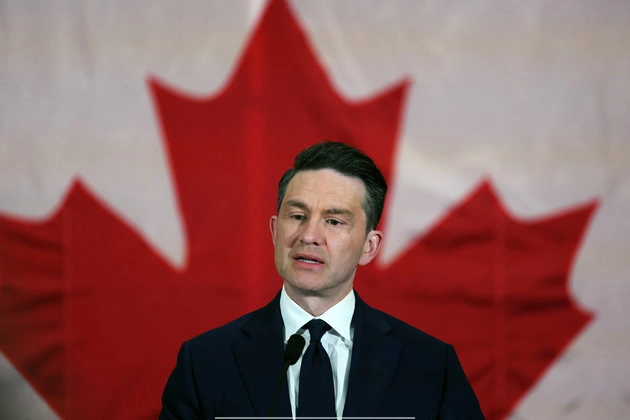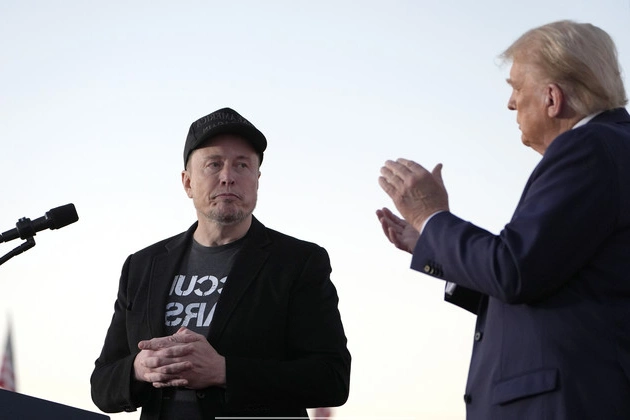
Amid heightened concerns in Canada over potential American influence, the political scene is witnessing significant shifts. President Donald Trump’s policies have sparked unease regarding economic and cultural autonomy, prompting a reevaluation of political strategies.
Political Turbulence and Adaptation
The escalating apprehension nationwide has disrupted the expected ascent of Conservative Leader Pierre Poilievre, necessitating a recalibration of his messaging and campaign approach.
Shachi Kurl, president of the Angus Reid Institute, highlights the emergence of an ‘anyone but conservative’ sentiment, complicating Poilievre’s electoral path.
Since assuming leadership of Canada’s Conservatives, Poilievre has championed populist themes, advocating for policies like ‘ax the tax’ and emphasizing the need for a ‘carbon tax election.’
Shifting Political Narratives
However, recent developments have reshaped the electoral landscape, with Trump’s shadow looming large over voter preferences. Amidst tariff threats and annexation rhetoric, the electorate is scrutinizing leadership capabilities in handling U.S. relations.
Poilievre has pivoted towards a more nationalistic agenda, embracing slogans like ‘Canada First’ and positioning himself as a champion of Canadian interests.
His ‘Canada First’ rally symbolizes a departure from his prior rhetoric, signaling a revised narrative focused on national pride and autonomy.
Policy Priorities and Electoral Dynamics
Central to Poilievre’s platform is a commitment to dismantling Trudeau’s climate policies, which he views as detrimental to key industries like oil and gas.
His pledge to prioritize economic self-sufficiency and defense spending resonates with segments of the electorate disillusioned with current policies.
Despite his strong support base, Poilievre faces the challenge of navigating divergent conservative factions, particularly in the context of differing views on Trump’s administration.
Future Prospects and Strategic Imperatives
As the political landscape evolves, Poilievre’s positioning as a staunch advocate for Canadian sovereignty remains a focal point. His proposals for energy independence, trade diversification, and regulatory reform underscore a vision for a self-reliant nation.
While Trump’s rhetoric continues to impact Canadian discourse, Poilievre’s resilience in articulating his vision for the country’s future remains a defining feature of the current political climate.
As the electoral contest unfolds, the question of who can best navigate the complexities of U.S.-Canada relations looms large, shaping the strategic calculus of political actors.















